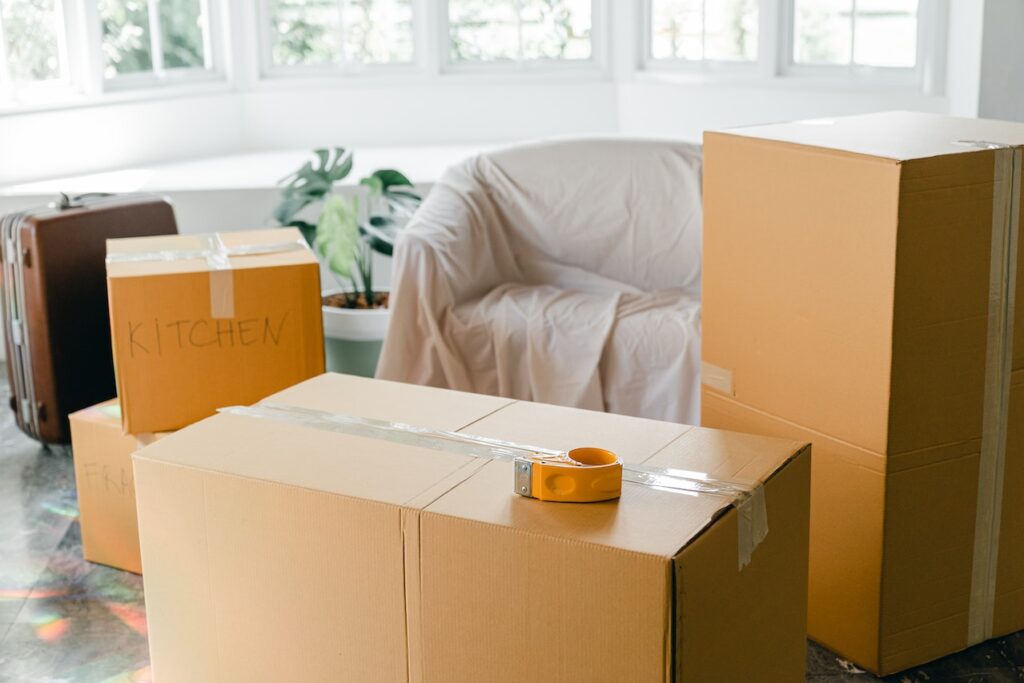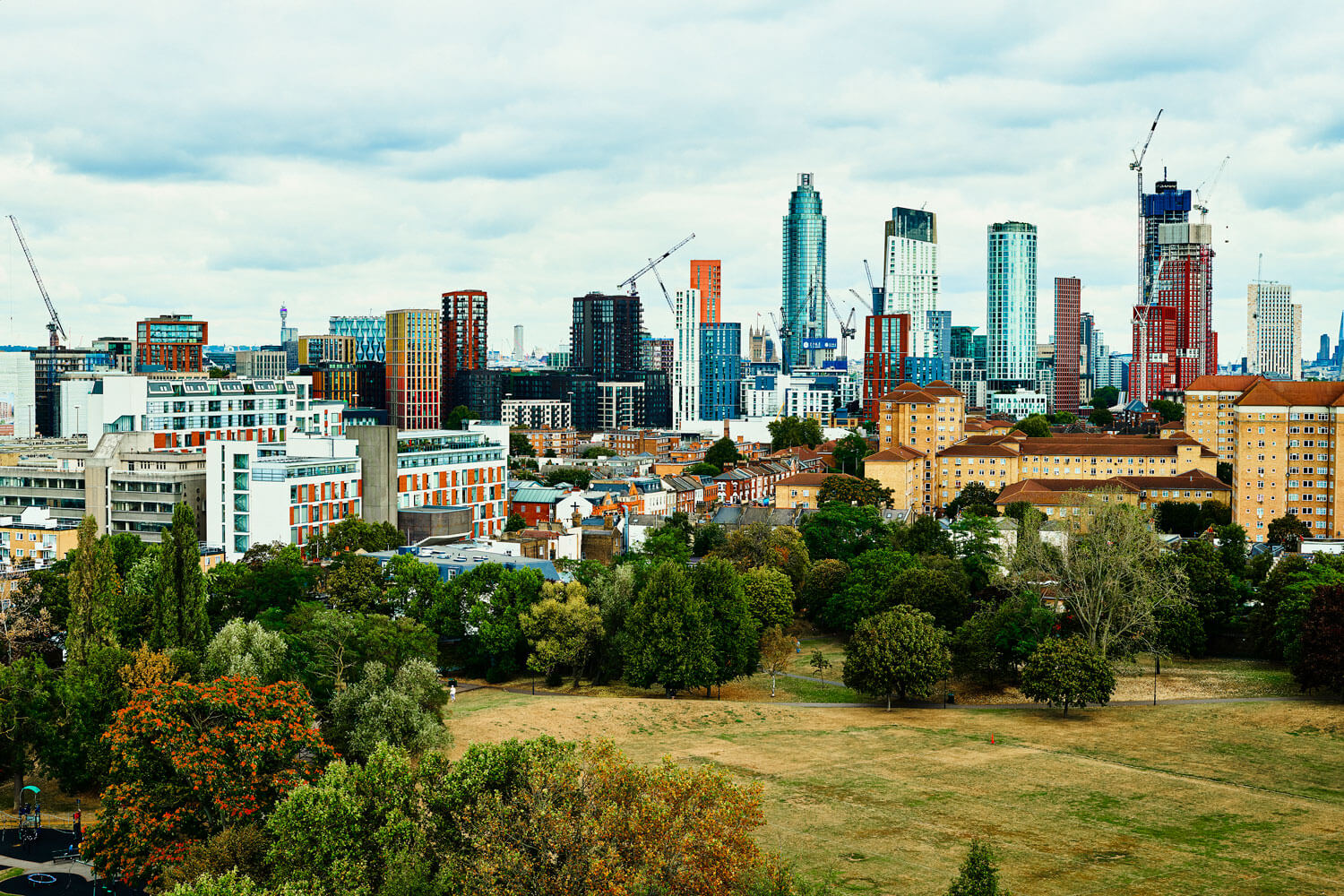
Our Things To Do When Moving House Checklist
Well, there are lots of reasons. Moving in with a partner, relocating to somewhere new for work, or finding a place that will give you greater financial security are just a few examples. Moving somewhere new should be an exciting prospect, full of possibilities and potential - but sometimes it’s hard to feel the excitement when you’ve got logistical worries weighing you down. The easiest way to keep it stress-free is to be as organised as possible.
In our moving house checklist we’ve detailed all of the things you need to stay on top of before, during and after your move. Lots of elements of moving house are outside of your control and rely on conveyancers and people further up the chain. So it’s important that you manage your responsibilities, to make sure that you’ve done your part to avoid any potential hold-ups.
How far ahead do I need to start planning?
It currently takes on average around 5 months for a sale and move to go through, start to finish. Obviously if you’re renting this may not apply to you, but you could still be at the mercy of people further up and down the chain. While it’s not uncommon for some aspects of your move to happen quite quickly, you ideally want at least a months notice of your moving date to give yourself enough time to plan.
This is especially important at the moment because even though the number of people moving where they rent has dropped from 2021, it is still well above pre-pandemic levels. This means more strain on conveyancers, and more competition when booking moving companies.
"If you’re a renter your landlord needs to know the exact date that you will be moving out."
While it can be disappointing for a problem to occur and a move not to go through, it is always better to have been prepared to move than it would have been to make arrangements at the last minute.
Things to do before moving
Here is our list of things to get done well in advance of moving day:
Confirm your moving date
It sounds obvious, but imagine the nasty surprise if your movers turn up a week early because they’ve been given the wrong date, and aren’t available to be booked for the day you really need them. So make sure you know this well in advance!
Give notice
If you’re a renter your landlord needs to know the exact date that you will be moving out. The amount of notice you need to give may vary depending on your tenancy, so make sure you have this information well ahead of time. If your moving date doesn’t align with the end of your lease there may still be money to pay - make sure you keep track of this to avoid any nasty surprises later on. However, this also means you may be able to spread your move over a few days, alleviating some of the pressure.

Choose a removals company
Make sure you shop around when deciding on a removals company - prices will vary depending on the size of their team and the amount of things you need to transport. Look for a trusted trader with positive reviews - they should be transparent when discussing their fees.
You may need to source your own packing materials, or they may be provided by your movers as part of their service. Alternatively, you can rent a van and enlist the help of family and friends - but, if you do choose this option, make sure everyone involved is comfortable with potentially lifting and carrying heavy things. You don’t want any strained backs or squashed toes, let alone broken furniture.
Contact utility companies
Utility suppliers need to be given plenty of notice regarding your move, especially if your phone and internet providers are coming with you - we recommend a minimum of two weeks' notice. It can be frustrating being left without internet for a while following a move, and avoiding this saves your stress - and your data!
Accounts that can’t be transferred will need to be closed, and make sure you’re meticulous about taking final metre readings to avoid paying additional fees. Moving house is expensive at the best of times - don’t make it any more costly by not being thorough. Settle up any money you do owe and hold on to confirmation of when and how these bills were paid.
Redirect mail
Don’t run the risk of important post being sent to your previous address. Bills or medical information not being able to reach you can cause a world of problems further down the line. There is a fee involved for redirecting your post through Royal Mail, but it’s worth it when compared to the alternative.
You should also make sure your address is updated for anywhere you shop online, to avoid gifting the new residents of your old place with your purchases or takeaways.
Pack your belongings
Packing is one of the most stressful parts of moving, and will probably leave you promising to try and be a minimalist in the comfort of your new home. When did you accumulate so much stuff? Where are you going to put it all?
Moving house is a good opportunity to declutter, so well in advance of your moving date why don’t you start getting rid of some things? Selling clothes or homeware on secondhand apps and websites is also a good way to pocket some extra cash before your move. Charity shops will also welcome donations of your unwanted items, earning you some extra karma at the same time as lightening your load.
When packing it’s important to think about what you will need early access to on moving day. This could mean anything from important documents to coats and jackets or even snacks. Fill a box with items you want to keep close to hand and make sure it’s the last thing to go in the moving van, or travels separately with you.
You might also find yourself waiting on new furniture after moving house, with things like new sofas sometimes taking up to 12 weeks to be delivered. If this is the case for you, make sure you source temporary seating and bring it with you on the day.
Things we would recommend as packing essentials include:
- Labels and marker pens - keep everything organised
- Tissue paper and bubble wrap, for your fragile belongings
- A separate box of cleaning supplies, for when you reach your new home
Who needs to be contacted?
There is a long checklist of who to notify when moving house, including:
- Your employer
- The DVLA
- Your bank
- Your GP
- Your insurance providers
- Your local councils
As well as contacts such as these, think of the friends and family who need to have your new address, and make sure you have notified them. If you have pets you should start contacting potential vets in your new area well before you move, as many currently have long waiting lists. It is also important to make sure that their microchip details are up to date, should they go missing during or after the move.
What to do after you’ve moved in
Once you’re in your new rental home make sure you check each room thoroughly and always ask for an inventory (though trusted landlords like UNCLE will make sure this is done for you).
Count your keys
Double-check that all of the keys you have been given work, and that you have keys for every lock.
Take meter readings - again
Again, this is to make sure you avoid paying for any water, gas, or electricity that you have not used yourself. This is especially important if the property has been left empty for any time between the previous occupants moving out and you moving in (again, this is something that UNCLE can do for you!).
One room at a time
Though there’s a high chance of being overwhelmed with excitement at being in your new home, try to be methodical in your unpacking. This will reduce the chances of losing things, or leaving you without a place to sleep at the end of a very long day.
The definitive moving house checklist
Before
- Confirm your moving date
- Give notice
- Choose a removals company
- Contact utility companies
- Redirect mail
- Pack your things
- Update relevant authorities with your new address:
- Your employer
- The DVLA
- Your bank
- Your GP
- Your insurance providers
- Your local councils
During
- Keep your essentials box close by
- Clean as you go
After
- Count your keys
- Meter readings
- Take it one room at a time
Learn more about renting with UNCLE
A lot of the stress that comes with moving house can be avoided by choosing to rent instead of buy. There is more flexibility, someone else is responsible for your utilities and property insurance, and the opportunity to live in sought-after places where buying would be impossible.
If you’re a sociable person, living in a building with other people similar to yourself can also help with the anxiety and loneliness that can sometimes come after moving. It’s not uncommon for these feelings to occur when settling into a new place, especially if you’ve moved away from your support network of family and friends.
Did you know that you are twice as likely to be burgled in the 12 months following your move than at any other time? We understand that moving to a new, unfamiliar area will have you feeling particularly vulnerable, which is why we take security very seriously. Moving in with us means there’s a team of people looking out for you, before you’ve even met your neighbours.
At UNCLE we want our residents to feel taken care of, and for renting to be a positive experience. This is why, on top of beautifully furnished apartments and inviting residents-only shared spaces, we’ve given UNCLE renters access to added perks.
If you’re considering moving to London or Manchester, you should learn more about why you should rent with UNCLE.

Considering Living in Leeds vs London? Weigh Your Options

Our Guide to 8 Great Restaurants in Stockwell











